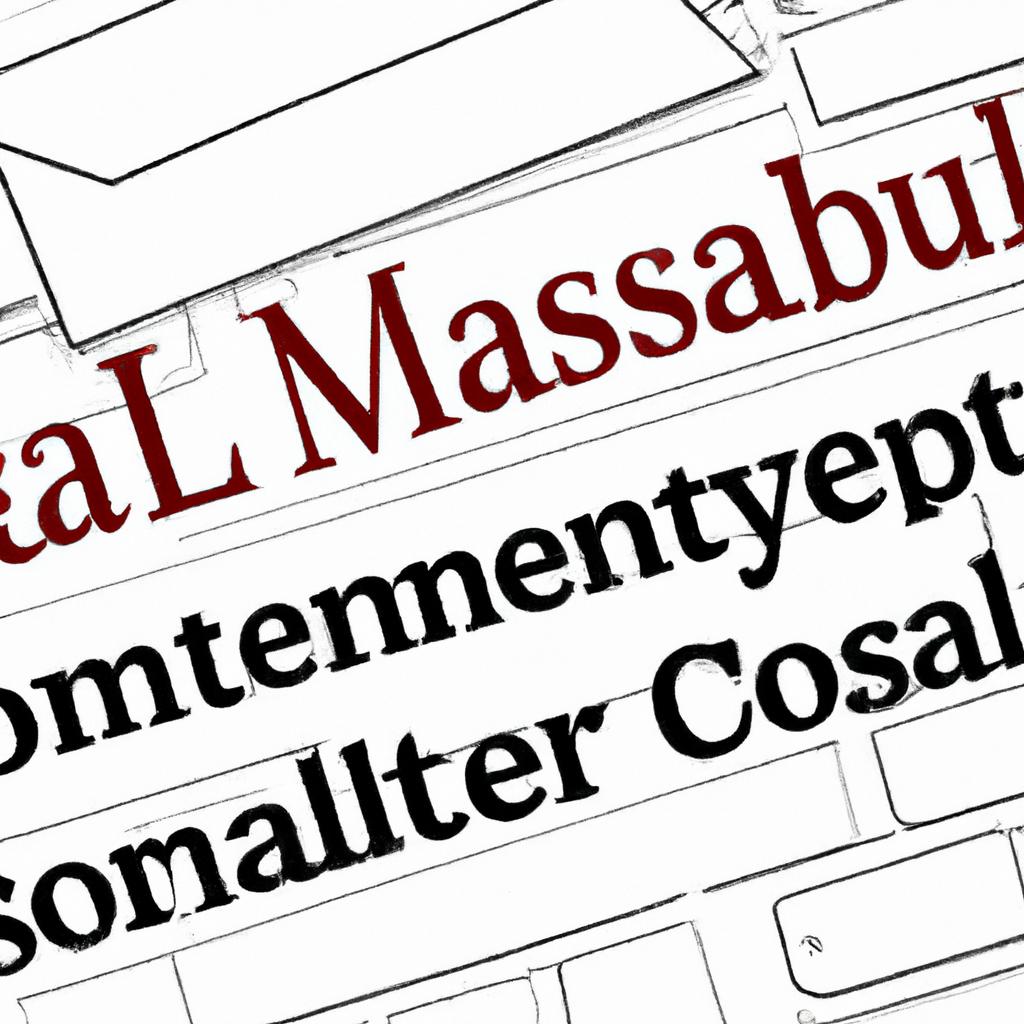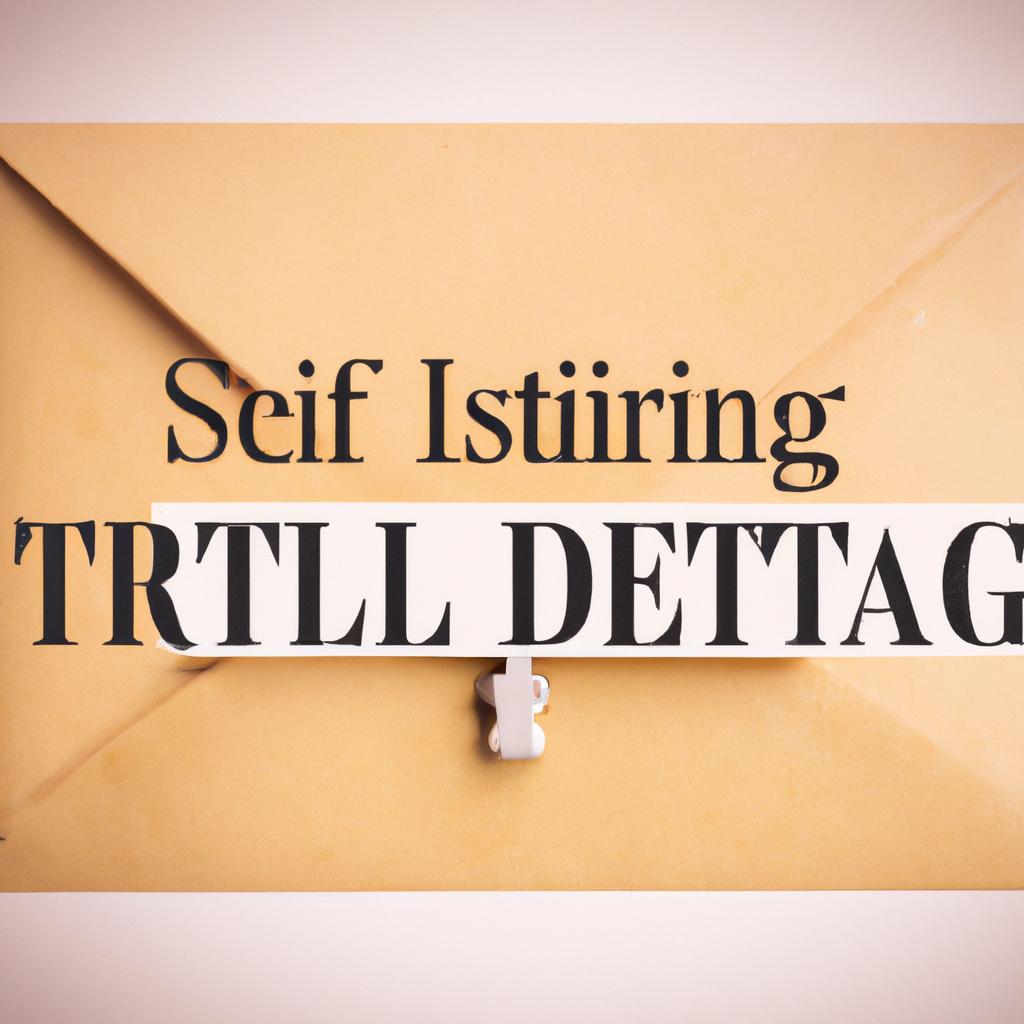As practitioners in the field of estate planning and probate law, the team at Morgan Legal Group frequently encounters a unique and often overlooked issue: deceased mail. The influx of mail addressed to deceased individuals can not only be a nuisance for the surviving family members but can also pose potential risks in terms of identity theft and financial fraud. In this article, we will explore the importance of stopping deceased mail and provide practical tips on how to effectively manage this common post-mortem complication.
Preventing Unwanted Delivery of Mail to Deceased Individuals
When a loved one passes away, it is crucial to take steps to prevent unwanted delivery of mail to deceased individuals. Not only can receiving mail addressed to the deceased be emotionally distressing for family members, but it can also lead to potential identity theft and fraud issues. To ensure that the deceased’s privacy and security are protected, it is important to notify the appropriate organizations and individuals of the individual’s passing.
Some key steps to stop deceased mail include updating the deceased individual’s address with the United States Postal Service, notifying financial institutions, utility companies, and government agencies of the death, and requesting a deceased recipient mail hold with the USPS. By taking these proactive measures, you can help prevent sensitive information from falling into the wrong hands and minimize the risk of identity theft. Remember, safeguarding the privacy and security of your loved one’s personal information is essential in honoring their memory.

Legal Obligations and Responsibilities Regarding Deceased Mail
When a loved one passes away, it is important to understand the . Failure to properly handle deceased mail can lead to potential issues and complications. As a legal professional specializing in estate planning and probate, it is crucial to educate yourself and your clients on how to appropriately manage deceased mail.
One key responsibility when it comes to deceased mail is to notify the United States Postal Service (USPS) of the individual’s passing. This can be done by completing a Change of Address form and indicating that the person is deceased. Additionally, it is important to monitor the deceased individual’s mailbox to ensure that mail is not being delivered to the property. If mail continues to arrive, it may be necessary to contact senders directly to inform them of the individual’s passing. By taking proactive steps to stop deceased mail, you can help prevent identity theft and protect the estate’s assets.

Effective Strategies for Stopping Deceased Mail
When dealing with deceased mail, it is essential to take proactive steps to ensure that the deceased individual’s personal information is protected and that unwanted mail is stopped. Here are some effective strategies to help you stop deceased mail:
- Notify the Post Office: Contact the local post office and inform them of the individual’s passing. They can place a forwarding address on file or stop mail delivery altogether.
- Update Mailing Lists: Reach out to companies and organizations that regularly send mail to the deceased and request that they update their records accordingly.
- Return to Sender: For any mail that continues to arrive after notifying the post office and updating mailing lists, mark it as “Return to Sender” and place it back in the mailbox.
| Name | Contact Information |
|---|---|
| Company A | 555-555-5555 |
| Organization B | info@organizationb.com |

Collaborating with Estate Administrators to Cease Delivery of Mail
to deceased individuals is a crucial step in the probate process. By working closely with these administrators, we can ensure that sensitive information is protected and prevent any potential identity theft issues. Our team at Morgan Legal Group is experienced in handling these types of situations with care and efficiency.
Through our collaborative efforts, we can help streamline the process of notifying relevant parties, such as banks, credit card companies, and subscription services, of the individual’s passing. By halting the delivery of mail to deceased individuals, we can alleviate the burden on their loved ones and help bring closure to the estate administration process. Our expertise in estate planning allows us to navigate these complex matters with precision and professionalism.
Q&A
Q: What is the common issue of receiving mail addressed to deceased individuals?
A: One common issue is the emotional distress it can cause to the family members of the deceased.
Q: How does mail for deceased individuals continue to arrive even after their passing?
A: Mail may continue to arrive due to outdated mailing lists, automatic subscriptions, or simple oversights.
Q: What are the potential consequences of not stopping deceased mail?
A: Continuously receiving mail for deceased individuals can be a painful reminder of their passing and can also potentially lead to identity theft if sensitive information is being delivered.
Q: How can one go about stopping deceased mail from being sent?
A: One can contact the companies sending the mail directly, inform them of the individual’s passing, and request that the mail be ceased.
Q: Are there any services or organizations that can assist in stopping deceased mail?
A: Yes, there are services available that specialize in helping individuals stop unwanted mail for deceased individuals, such as the Deceased Do Not Contact List.
To Conclude
In conclusion, putting a stop to deceased mail can bring a sense of closure and peace during a difficult time. By following the steps outlined in this article, you can ensure that your loved one’s memory is respected and their personal information is safeguarded. Remember, taking proactive measures to prevent deceased mail can alleviate some of the stress that comes with handling the affairs of a deceased individual. Thank you for reading and may this information serve you well in navigating this delicate process.










